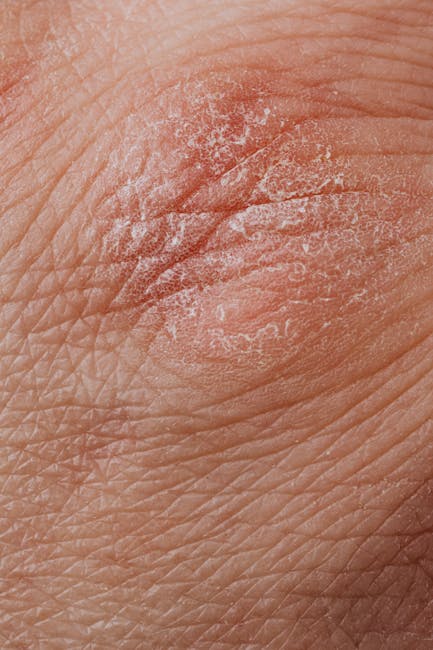Introduction
Eczema and other skin issues like psoriasis and acne can be incredibly frustrating and uncomfortable. While conventional treatments often provide relief, many people are exploring alternative approaches to manage their symptoms. The Paleo diet, which focuses on whole, unprocessed foods, has gained attention for its potential to reduce inflammation and improve skin health. This article explores how the Paleo diet may help manage eczema and other skin issues, offering a deeper understanding of its principles and benefits.
The Paleo Diet and Skin Health: Understanding the Connection
What is the Paleo Diet?
The Paleo diet, also known as the Caveman or Stone Age diet, centers on eating foods that our hunter-gatherer ancestors likely consumed. This means prioritizing whole, unprocessed foods while avoiding modern processed foods. Key principles include:
- Prioritizing Whole Foods: Emphasizing fruits, vegetables, lean proteins, and healthy fats.
- Avoiding Processed Foods: Eliminating refined sugars, processed grains, and unhealthy oils.
- Focusing on Nutrient Density: Choosing foods rich in vitamins, minerals, and antioxidants.
How the Paleo Diet May Benefit Skin
The potential benefits of the Paleo diet for skin conditions like eczema stem from several key factors:
- Reducing Inflammation: The Paleo diet naturally reduces inflammation by eliminating inflammatory foods like processed grains, sugar, and unhealthy fats. Chronic inflammation is a major contributor to eczema flare-ups.
- Gut Health Improvement: The diet promotes a healthy gut microbiome by eliminating processed foods and promoting the consumption of nutrient-rich foods. A healthy gut is crucial for overall health and can impact skin conditions.
- Blood Sugar Regulation: By eliminating refined sugars and processed carbohydrates, the Paleo diet helps stabilize blood sugar levels. This can reduce insulin spikes, which can trigger inflammation and worsen skin problems.
- Eliminating Potential Allergens: Many common allergens, such as dairy and gluten, are often excluded on the Paleo diet. Identifying and eliminating these allergens can significantly improve eczema symptoms for some individuals.
Specific Foods to Include and Avoid on a Paleo Diet for Eczema
Foods to Embrace for Healthy Skin
- Lean Proteins: Grass-fed beef, wild-caught fish (rich in omega-3 fatty acids), poultry.
- Fruits and Vegetables: A variety of colorful fruits and vegetables packed with vitamins, minerals, and antioxidants. Emphasize those low in natural sugars.
- Healthy Fats: Avocado, nuts, seeds, olive oil, coconut oil. Focus on omega-3 rich sources.
- Bone Broth: Rich in collagen and amino acids, supporting gut health and skin elasticity.
Foods to Avoid to Minimize Flare-Ups
- Grains: Wheat, rye, barley, oats, and rice. These can be inflammatory for some individuals.
- Legumes: Beans, lentils, and peanuts. While controversial, some individuals find they contribute to inflammation.
- Dairy: Milk, cheese, yogurt, and butter. Dairy can be a common allergen and trigger eczema flare-ups.
- Processed Foods: Packaged snacks, sugary drinks, refined sugars, and artificial sweeteners. These are often high in inflammatory ingredients.
Implementing the Paleo Diet for Eczema Management
Starting Gradually
Making drastic dietary changes can be overwhelming. Start by gradually incorporating Paleo-friendly foods into your diet and eliminating one potential trigger food at a time. Keep a food diary to track your symptoms and identify any specific food sensitivities.
Consulting a Healthcare Professional
It’s always recommended to consult with a healthcare professional or a registered dietitian before making significant dietary changes, especially if you have existing health conditions or are taking medications. They can provide personalized guidance and ensure that the Paleo diet is appropriate for your specific needs.
Monitoring Your Progress
Pay close attention to your skin’s response as you transition to the Paleo diet. Track your symptoms, noting any improvements or flare-ups. This information can help you fine-tune your diet and identify specific trigger foods.
Conclusion
The Paleo diet offers a promising approach to managing eczema and other skin issues by reducing inflammation, improving gut health, and eliminating potential allergens. While it may not be a cure-all, many individuals have found significant relief by adopting this dietary approach. Remember to start gradually, consult with a healthcare professional, and monitor your progress closely to determine if the Paleo diet is right for you. By prioritizing whole, unprocessed foods and eliminating inflammatory triggers, you can potentially improve your skin health and overall well-being.
